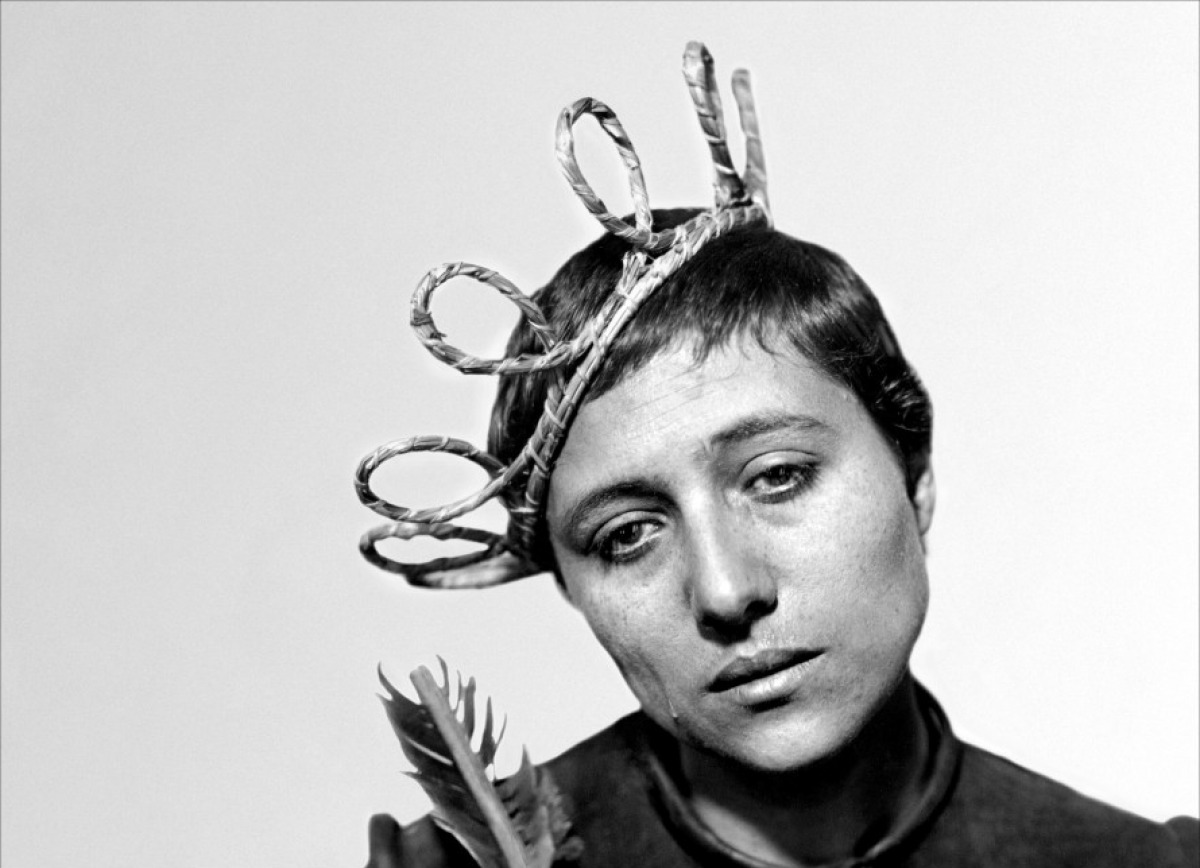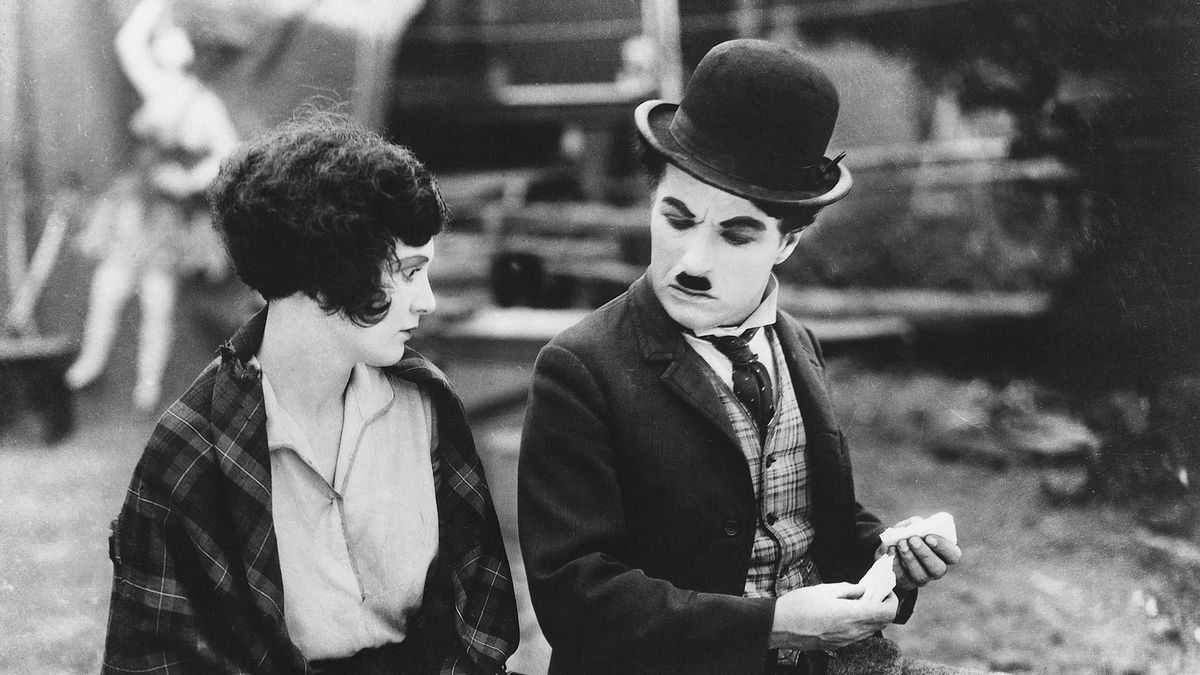6. The Passion of Joan of Arc (1928)

“Nothing in the world can be compared to the human face”, argued Carl Theodor Dreyer, author of this film and often regarded as the first ‘spiritual’ director. Any reader who’s watched it can attest to that statement, as chances are the tormented face of the young protagonist remains ingrained in their minds.
Initially banned in Britain, the film chronicles the trial and execution by the hands of English clerics of Joan of Arc, who’d later become immortalized in the annals of history as a beacon of martyrdom and faith. Dreyer realized that nothing could ever capture Joan’s agony better than her own face, and so the film keeps a penetrating close-up of her heroine at all times — her weepy eyes and blank stare mirroring her inner turmoil and unrelenting loyalty.
Speaking of which, if there’s one director that fully mastered the art of close-ups, it’s Bergman. If he were a painter, the human face would be his canvas. Most of his iconic imagery came not with some impressive wide shot but from a perfectly rendered, extreme close-up of one of his stars. “I’m a voyeur. To look at somebody, to find out how the skin changes, the eyes, and how all those muscles change the whole time – to me it’s always a drama. The correctly illuminated, directed and acted close-up of an actor is and remains the height of cinematography. There is nothing better.”
In Dreyer’s film, he found the perfect blueprint — not to mention the same themes of faith and mortality that would haunt him until the last of his days.
7. The Circus (1928)

When one examines the entries in this list, most don’t particularly come as shockers for a spiritual director like Bergman. Religious movies pondering over faith? Check. Inventive stories about the rotten morality of men? Also check. It’s both refreshing and surprising then to see a Chaplin picture sneak its way among a full deck of somber dramas.
If anything, it proves that for all his existential angst, Bergman wasn’t just a grumpy nihilist but someone who could appreciate some light-hearted comedy too. In the same line as Fellini’s La Strada, this movie explores the exploitative nature of the circus as an entertainment establishment through the eyes of a sympathetic handyman who reluctantly joins it by chance. As is the case with Gelsomina, Chaplin’s Tramp is poor and naive but with a heart of gold, eventually learning to find joy in his line of work. There’s a layer of irony and self-reflection in seeing Chaplin perform in front of an audience on screen, as if we’re watching ourselves through the years, endlessly beguiled by his charm and misfortunes.
It is said that every year on his birthday, Bergman screened The Circus for family and friends. It’s hard not to draw parallels between Chaplin’s classic and Sawdust and Tinsel, a movie where the Swede similarly delved into the circus’ self-deprecating essence through the entangled relationship between a ringmaster and a young horseback rider in his show.
8. Marianne and Julianne (1981)

This politically-charged German film follows the parallel lives of two close-knit sisters — a feminist journalist and a left-wing terrorist. Although their goals often overlap, their methods don’t — using words and bombs respectively to get their points across.
It’s easy to see why this film struck a chord with Bergman — said to have given him courage at a time when he was struggling with depression — since he experienced a similar upbringing as part of the same generation crippled by the aftermath of WW2.
Firstly, he too had to bear a religiously imposing — borderline draconian — paternal figure during his childhood. Most importantly, he went through the same moral reckoning after coming to terms with the atrocities carried out by the Nazi regime he was once oblivious of. One of the most poignant scenes in the movie shows the two sisters witnessing for the first time the true horrors of the Holocaust through the gut-wrenching footage of Alan Resnair’s Night and Fog documentary.
Margarethe Von Trotta was overwhelmed by Bergman’s praise for her film, claiming that having your idol tell you that what you do is great was the best compliment she could possibly get. “The film world’s most famous names were on his list,” Von Trotta recalls. “And there I was, at the very end, the only woman and the youngest of the pack”. The German auteur would pay her mentor justice with a heartfelt documentary screened in Cannes that focused on Bergman’s legacy and work.
9. Port of Shadows (1938)

Coming up next, we have a French noir courtesy of Michel Carné, a director credited by Bergman as being a decisive influence on wanting to become a filmmaker, and one he claims to be indebted far more than to universally beloved contemporaries of his like Jean Renoir.
Port of Shadows carries through a palpable melancholic mood, from the misty atmosphere that surrounds the foggy port of Le Havre to the hostile characters that populate it. When a stoic war deserter running from his past arrives at Le Havre, he sees a town where everyone seems to be on edge, deceitful and with a chip on their shoulder. Faithful to poetic realism, the movie is drenched with a sense of disillusionment that not even its main romance can wash off.
Thanks to an unpublished journal entry in 1945, it’s safe to say Bergman held it in high-esteem: “I have been to the movies and seen Carné’s profound and bitter masterpiece. Feel like a flyspeck on a window. How has he done it? Simple, almost meagre, but it is alive and vibrating each second, it is cinema in its highest and purest form.”
Carné’s narrative blueprint can be felt more evidently in Bergman’s sophomore film — It Rains on Our Love — featuring a romance eerily similar to Jean Gabin and Michele Morgan’s.
10. Raven’s End (1963)

Not every fellow countryman embraced Bergman as warmly as Victor Sjöström. The meteoric rise in popularity and appraisal the director experienced naturally raised some eyebrows among a number of his colleagues who yearned for the same recognition. Bookending this list, we have a film made by the so-called anti-Bergman — Bo Widerberg. Arguably the most accomplished of his contemporaries, Widerberg openly expressed the same criticism Bergman had to face throughout his career — mainly accusing him of not being socially conscious and focusing exclusively on inward introspection.
“Neither I nor my friends saw very much in him,” Bo claimed. “We didn’t find the issue of God’s existence that damned important”. Widerberg tried to reflect Sweden’s generational ennui in Raven’s End, telling the story of a young aspiring writer — Anders — crippled by two neglecting parents and a toxic environment. The film, often considered one of his finest, perfectly illustrates the struggles of the blue-collar class and the daunting prospects of prewar Sweden.
Despite being one of his most outspoken detractors, Bergman didn’t have a problem including Widerberg in his selected shortlist. “The first time I saw his films, I actually didn’t think they were anything special. I think it had a lot to do with the fact that Bo couldn’t open his mouth without saying something disparaging about me.” Bergman laments that he and Widerberg were never on speaking terms and they failed to bury the hatchet. “I think it’s a pity. Raven’s End is, in my opinion, his masterpiece, an impeccable film”.